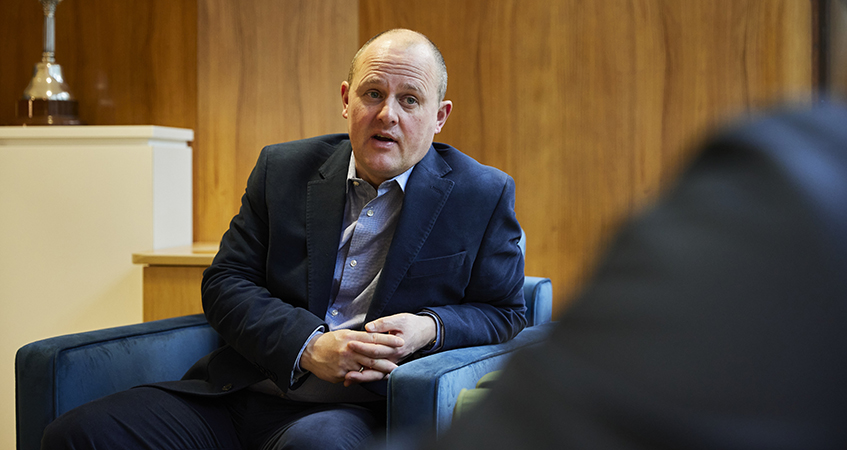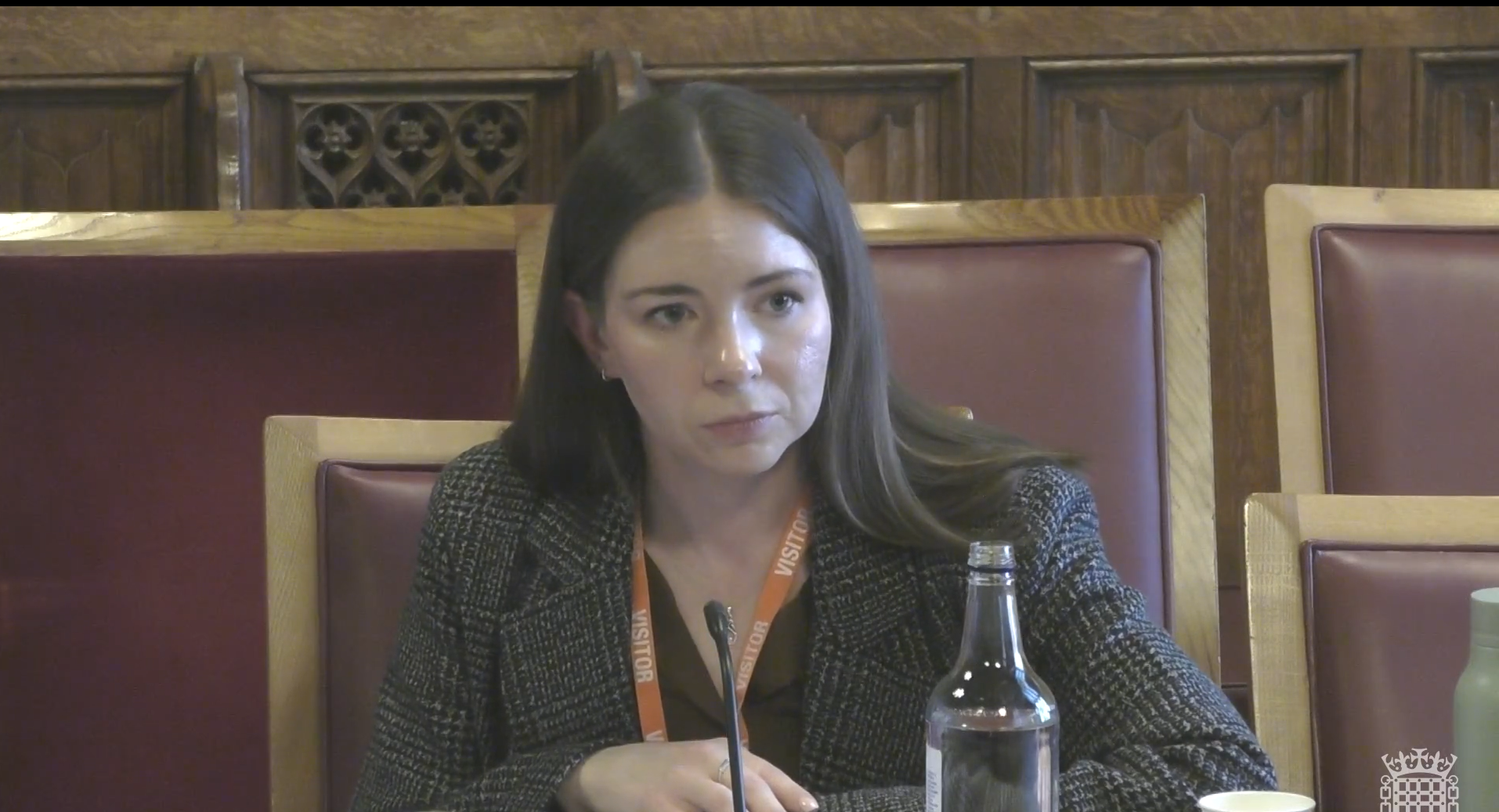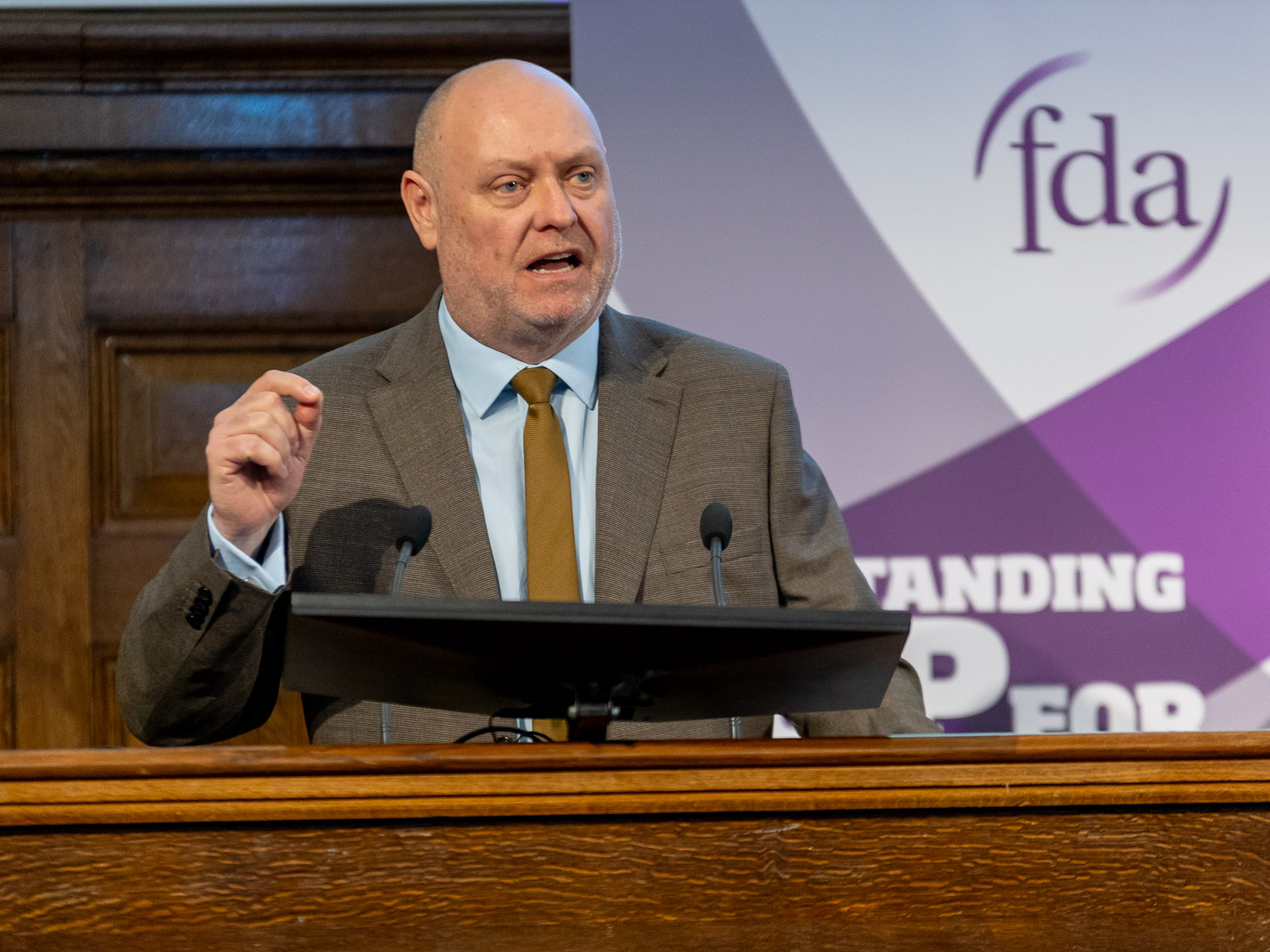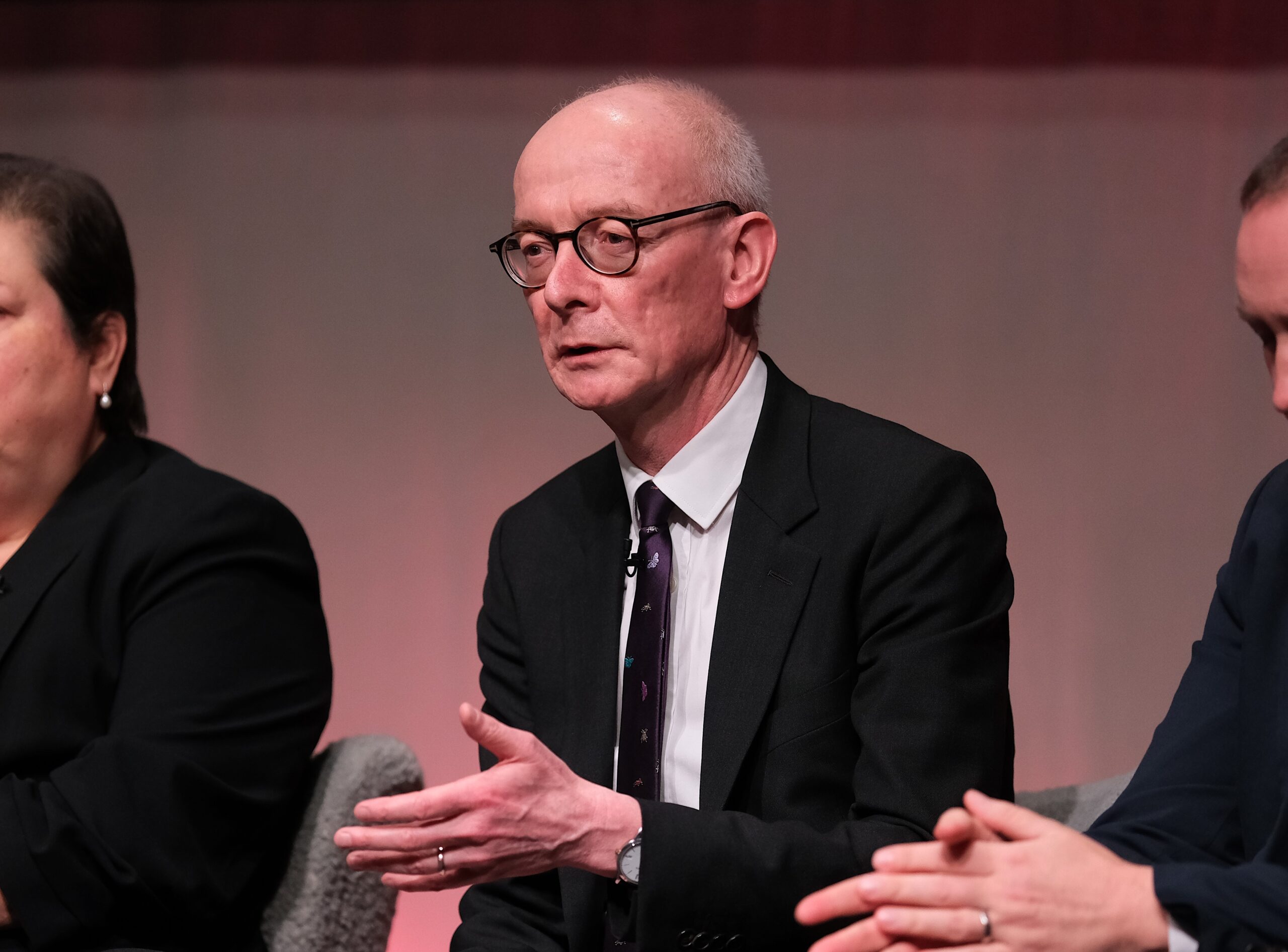Making a difference in the here and now

“The reality is that the problems that we’ve got around pay have not been a year in the making or two years in the making, and they’re not just about inflation right now.”
Paul Nowak took the reigns as the new General Secretary of the TUC amidst a cost of living crisis and a long list of pay disputes spanning the public and private sectors.
“I think pay is obviously a really sharp issue being felt by our members,” he says. “It doesn’t matter whether they’re FDA members in the civil service or people working as porters in hospitals.”
He points to the fact that “we’ve had over a decade of effective wage stagnation” as evidence that “something has gone wrong on pay”. While this does apply to the private sector, Nowak believes there are “a particular set of issues at the moment in the public sector”, with recent work from the TUC showing that the average public sector worker is around £200 a month worse off now in real terms than they were in 2008.
“The challenge is going to be getting government to think seriously about pay and pay in the context of staff recruitment, retention and motivation at a time when there are people jumping up and down on the back benches looking for tax cuts,” he says.
In the civil service, Nowak warns “there’s a real danger of a brain drain” with staff saying “I think I can go and work in the private sector, earn more and have an employer that’s treating me with a little bit of respect and values the work that I do”.
“I’ve been talking to a lot of workers over the last few weeks and months,” he adds. “People like your Fast Stream graduates who have never taken strike action before, never thought they would take strike action and have been forced into this position.”
Nowak believes that the government has “misjudged the public mood”, including when it comes to plans to place even more restrictions on union members’ right to strike.
“Our unions will always find a way to effectively represent their members”
“Whatever legislation the government brings in, I think our unions will always find a way to effectively represent their members and to support members who want to take strike action,” he assures. “But I think this is a particularly churlish piece of legislation because the government’s response to seeing hundreds of thousands of public sector workers taking strike action is not to ask the questions: ‘Why are they taking that action? What can we do to resolve the dispute?’, it’s just ‘let’s make it harder for them to take that strike action’.”
He believes this approach only “exacerbates industrial relations problems” and pledges the TUC’s commitment “to do what we can to prevent it getting on the statute book”.
Against this backdrop, unions are never far away from the headlines, with many experiencing growth in membership. The FDA, in particular, has grown by around 40 per cent over the last four years to reach a record membership of more than 22,000. While recognising that membership across TUC unions “has grown four years out of the last five”, Nowak cautions “you can’t look at it through rose tinted specs”.
A key issue he raises is lack of membership throughout the private sector, where around 85 per cent aren’t unionised. However, he does believe “we’re headed in the right direction”, which has been partly driven by the movement’s response to the COVID-19 pandemic. When a lot of people were facing uncertainty, Nowak says that unions were “in the headlines for all the right reasons”, at the “front and centre as part of the solution”.
“We were at a period of national crisis and trade unions stepped up to the plate, as we often do,” he adds. “With the furlough scheme, which protected the livelihoods of millions of people and their families, but also the safe working guidance that meant the people who had to go to work were kept safe during the pandemic. And for lots of people who weren’t union members, who had no first-hand experience of unions, this was seeing unions making a difference in the here and now.”
While cautious that the movement cannot be complacent, Nowak thinks this increased exposure does present a “unique opportunity” for unions.
“Young people picking up the paper for the first time, turning on the news, going on social media, will see unions each and every day standing up for their members and we’ve got to build on that,” he says. Unions must seize on this by being visible and relevant, and part of the challenge is “making sure we’re in the workplaces where young people are”.
“If you’re a young, Fast Stream graduate going into the civil service, it’s quite a strong possibility you will join a union because you’ll see the FDA, you’ll see the difference the unions make,” he explains. “If you’re that same young graduate going to work in the private service sector where there are no unions present, it’s much harder.”
At the close of 2022 Nowak took over his role from Frances O’Grady, the first woman to lead the TUC. Looking around the union movement, it’s a much more diverse place than when he joined the TUC Organising Academy in 1997, with some of his contemporaries from that first cohort now leading figures in the union movement, including Unite General Secretary Sharon Graham and Scottish Trades Union Congress General Secretary Roz Foyer.
“It is brilliant to see so many senior women sitting around the top tables of our movement”
“It is brilliant to see so many senior women sitting around the top tables of our movement and I don’t think that’s just happened by accident, I mean, it took the TUC the thick end of 150 years to get its first woman General Secretary.”
He says more women in top jobs is “a really important indicator of the state of health of the movement but we know we’ve got much further to go”.
“If you look at the representation of black and ethnic minority workers, 30 per cent of black women in this country at work are members of a union. That’s not reflected around our leadership tables,” he explains
Another key issue Nowak raises as a barrier to better diversity in unions is bullying and harassment.
“We’ve still got problems with issues like sexual harassment in our movement,” he says. “We’ve got problems with issues of sexual harassment in our workplaces but in our movement, we need to be a zero-tolerance environment for sexual harassment. This should be a safe space for women activists to come through and feel that they can participate, take part, engage in their union and not feel the threat of harassment. So, that’s a challenge for all of us… Not just for the women in the movement, for all of us.”
The TUC has run training and workshops for its staff “to think about what’s our responsibility as leaders in the movement, how do we call it, how do we act?”. He’s keen to extend this to TUC affiliates to give more support to unions to “get our own house in order” but thinks much more still needs to be done to put unions “on the front foot”.
“Basically, every woman in our movement will have some experience of sexual harassment. Not everyone feels confident that if they raised that with their union, the union would take it on and prioritise it as an issue,” he suggests. “So, I think making sure that people know that we take these issues seriously, we’re prepared to do something about it and we walk the walk as well as talk the talk on it is really important.”
Bullying and harassment, of course, is widespread across workplaces, and we have seen over the last few years numerous allegations made against MPs and ministers. The FDA’s long campaign for an independent process to deal with complaints against MPs resulted in the introduction of the Independent Complaints and Grievance Scheme in Parliament and the union is currently fighting for an improved, independent system to deal with complaints against ministers.
“People deserve to be treated with the respect”
“I pay tribute to Dave [Penman, FDA General Secretary] and to the work that the FDA has done, for dragging this into the public domain, because it is right,” Nowak says. “At the end of the day, Parliament and Whitehall are workplaces as well. People deserve to be treated with the respect.”
He also combats misconceptions that more senior roles preclude people from being bullied or harassed. “The idea that somehow being senior in an organisation means that you should accept bullying and harassment, you should expect to be shouted at, you should expect to be intimidated, that sets the culture for the whole organisation. If you haven’t got it right in the corridors of power, you’re not likely to get right in Britain’s workplaces,” Nowak says.
He describes the issue of bullying and harassment as “one of the most depressing features of politics” over the last few years, with the sheer number of allegations making it appear that “there’s an acceptance of this behaviour”, which he believes “sends out all the wrong signals”.
“We want the brightest and the best to work in our civil service, but if you’re going to work and feel that a minister can act with impunity, I think it really does disincentivise people. It really affects the morale, really affects the quality of the work that they do and, ultimately, people vote with their feet and leave,” he adds.
Building unions: TUC Organising Academy
Paul Nowak joined a union for the first time at aged 17, when he was working part time in Asda.
“That was a job that saw me through most of college and university. When I was there, I became a GMB member, health and safety rep, and I’ve always been active in the union ever since.”
Nowak has worked in a variety of jobs since, from a hotel night porter, to an agency worker at a BT call centre, to what he describes as being “the world’s most unsuccessful estate agent”. One constant was that, no matter what job he did, he was “always active in unions”.
Nowak jokes that “nobody leaves school saying ‘I want to be TUC General Secretary’” but his first step to working full time for a union came when he attended the TUC Organising Academy in 1997. Set up by his predecessor, Frances O’Grady, Nowak was among the first cohort.
“The focus of the academy was about building unions, he explains. “So traditionally, when people came into the trades union movement, you cut your teeth around the negotiating table. The Academy was an attempt to say, well, we needed to bring in a cohort of people whose focus is going to be building workplace organisation, bringing in new stewards and representatives, building membership.”
As a lay rep, Nowak says he “never thought” that he’d end up working full time in the union movement, mainly due to his working experiences before attending the Academy. “I never came from a well unionised workplace. Most of the jobs I had were on temporary contracts, agency contracts. So, it was a sort of unique opportunity and one that, frankly, changed my life.”
Devolution: responsibility and resource
One policy direction that appears to cut across party lines, even if there isn’t quite a consensus on how it should be done, is increased devolution of power across the UK. Nowak believes there are “some real opportunities” here, especially if you look to international examples, as Britain is a “much more centralised country, certainly compared to large parts of Europe, whether it’s Germany, Spain, where devolution is much more in the fabric of the country”.
For Nowak, a key ingredient of successful devolution is “unions and workers being in those discussions about how devolution is going to work”.
“It’s got to be that, rather than just headline grabbing, send a couple of thousand staff off to the North East, because that’s ‘levelling up’,” he stresses. “That’s not levelling up at all. That’s performative devolution. I want to see devolution that’s really rooted in delivering services at the appropriate level.”
Nowak also highlights that devolution has to be well managed, so it doesn’t exacerbate inequality. While there are very clear powers for mayors in areas like Greater Manchester and Liverpool City Region, he believes “it’s hard to see how that model of devolution work for, say, smaller rural areas”.
“I do have concerns about things like regional pay and a race to the bottom on terms and conditions,” he adds. “I have concerns about things like the postcode lottery on access to services and I suppose what you would call the asymmetric nature of devolution, certainly in the English regions… You’ve got to make sure that as well as devolving responsibility you’re devolving real resource. I’m very sceptical about approaches, for example, about just allowing local authorities to raise their own taxes because there’s a danger that that embeds inequality.”
Related News
-

Office attendance mandate “doesn’t make sense”, Crowley tells House of Lords Home-based Working Committee
FDA Assistant General Secretary Lauren Crowley gave oral evidence to the House of Lords Home-based Working Committee for its inquiry on remote and hybrid working.
-

“FDA is not afraid of civil service reform, but it has to have substance”
FDA General Secretary Dave Penman responds to the government’s latest announcement on the reshaping and renewal of the state.
-

Government’s plans for civil service reform “lack substance”, says FDA
The FDA has criticised the government’s rhetoric surrounding the announcement of a series of civil service reforms – on performance-based pay, fast track exits for underperformers, and performance management – by Chancellor of the Duchy of Lancaster Pat McFadden.